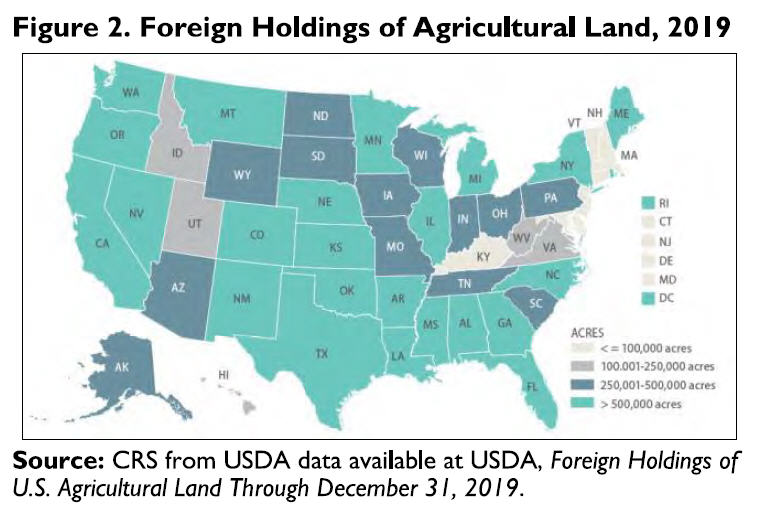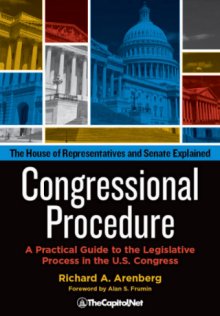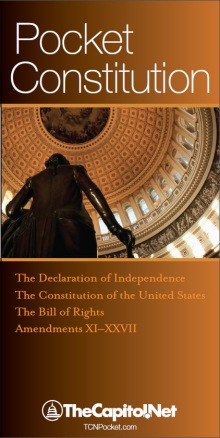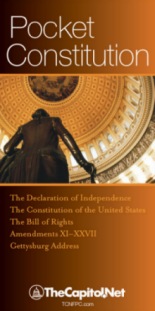Foreign Farmland Ownership in the United States – CRS In Focus IF11977
Legislation introduced in the 117th Congress seeks to restrict foreign investment and ownership of U.S. agricultural land. In 2019, foreign persons and entities held an interest in 2.7% of U.S. privately owned agricultural land—covering crop, grazing, and forest land—according to the U.S. Department of Agriculture (USDA). Other related legislation seeks to limit the eligibility of … Read more





